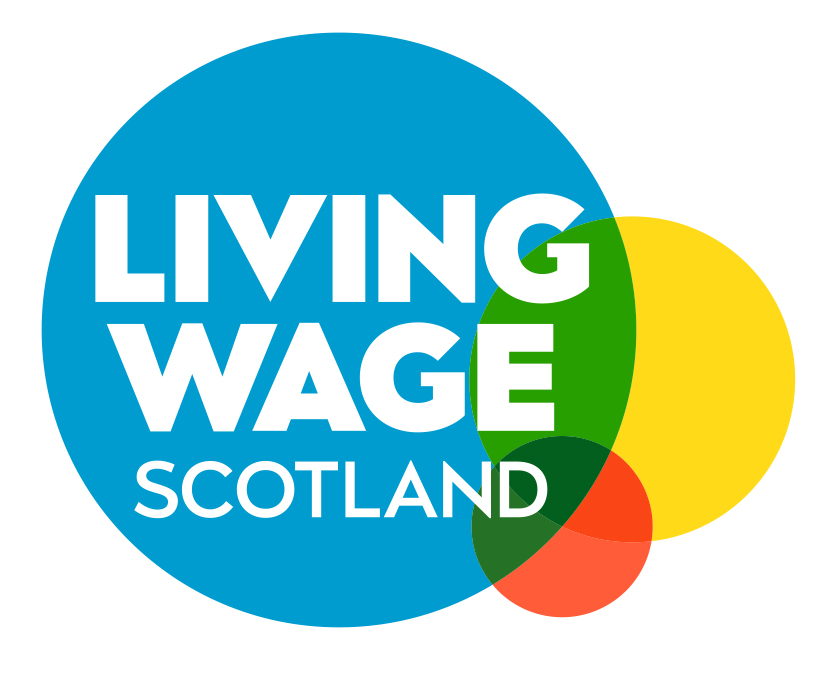This month we had the pleasure of chatting with Andy Kerr, Executive Advisor (Health and Social Care) for Enable Scotland, and a member of our Living Wage Scotland Leadership Group. The Group is made up of employers and experts from across Scotland, whose role is to provide advice on the implementation and future development of our work.
He currently chairs the Scottish Government Fair Work in Social Care Implementation Group, where he utilises a decade of experience in the social care sector to furthering the Fair Work agenda in Scotland. He is a former MSP and held ministerial roles on finance and health.
We caught up with Andy recently and asked him to share his experiences and thoughts on the real Living Wage.
Tell us about your current work, and where the real Living Wage fits in to that?
I work at ENABLE Scotland, a charity founded in 1954 by families who wanted their children who had learning disabilities to be able to live a good life in the community and out of institutions. Through a combination of social care, employability support and charitable projects, ENABLE Scotland supports more than 6,000 people who have a learning disability and their families across Scotland, and we employ more than 2,200 staff, around 1800 of whom work in frontline social care and support roles.
My job entails driving fair work inside ENABLE Scotland and more generally across the sector. I am indebted to ENABLE Scotland for providing me with the opportunity to work with the Scottish Government and CoSLA (Convention of Scottish Local Authorities) as chair of the Fair Work in Social Care group. So, the real living wage is an integral part of everything that I do at ENABLE Scotland.
Why do you think the rLW is now more important than ever?
There are two aspects to this, firstly for the social care sector and then secondly for the economy and economic recovery.
For the sector, staff turnover has long been a challenge. Sometimes people who are great at the job and have all the right values and qualities to work in social care have left to go and work in another sector where pay is better. The rLW is critically important in keeping the best people in the sector.
At ENABLE Scotland we also have a large proportion of our frontline staff being paid higher than the rLW and our evidence is that this is a significant contributor to enhanced recruitment and reduced staff turnover.
But most importantly the people we support tell us how much it means to them to get to know their personal assistants and really build a relationship with them, so reducing staff turnover and keeping the best people in social care means that as well as developing their careers in the sector, we can provide a much better service to the people we work for.
It is recognised that as a sector we have a key role to play in economic recovery and therefore the more we reward our staff the greater contribution they will have to that economic recovery. For those of a certain age, this is traditional Keynesian economics in action!
Why do you think committing to the rLW is important for ENABLE Scotland & the social care sector as a whole?
ENABLE Scotland has paid our staff the real Living Wage for every hour worked since January 2019 and we made the decision to pay the rLW before we were funded by commissioners to do so, as we decided this was simply the right thing to do.
We have always viewed the rLW as a fundamentally important step in boosting positive perceptions of social care as an appealing and rewarding career, and in so doing attracting and retaining the best talent with the right values to make a difference to the lives of thousands of people.
In 2020, ENABLE Scotland was very proud to become the largest social care provider in Scotland to be accredited as a rLW employer. We feel that by demonstrating the importance of the rLW and by going ahead and paying it, we have helped influence the Scottish Government to adopt Fair Work principles in the sector and hopefully embed a fully funded rLW for everyone who works in social care going forward.
What do you view as the main challenges and solutions in social care on paying at least the RLW and enhancing job quality?
The main challenges in the sector are our ambition, funding, and the procurement and commissioning system. The Fair Work Convention quite rightly points out that the current commissioning procurement system is an active inhibitor of fair work and in turn the rLW. We need to bite the bullet and accept the funding implications of a properly resourced social care sector and make the case for the significant contribution a thriving, well remunerated social care sector makes to the Scottish economy. As a sector, we also need to be more ambitious and innovative about how we organise ourselves and our workforce to ensure that we can focus energy to enhance and support the frontline.
What’s the best/most enjoyable thing about your job?
The most enjoyable part of my job is working with a creative team dedicated to providing high quality self-directed support and working with the innovators and influencers in our team who are committed to making a positive difference for the people we support, the sector and society.
What’s been getting you through the pandemic?
Family, good food, the occasional drink, football and getting out and about either walking with my dog Charlie or on my bike, but all within the rules!
What are you hoping for in the coming year?
Whilst there is significant change ahead for social care and big discussions about the role of the new National Care Service, it is essential that we continue to make positive changes to how social care is supported, funded and respected as a public service. Key to that is the rLW and Living Hours as it will, as a minimum, allow good people to stay with us during a time of economic recovery.
I also hope that all the recommendations of the Fair Work in Social Care Group which I chair will be delivered or at least set in train for delivery.
Lastly, we need more business and organisations to become accredited Living Wage employers!

